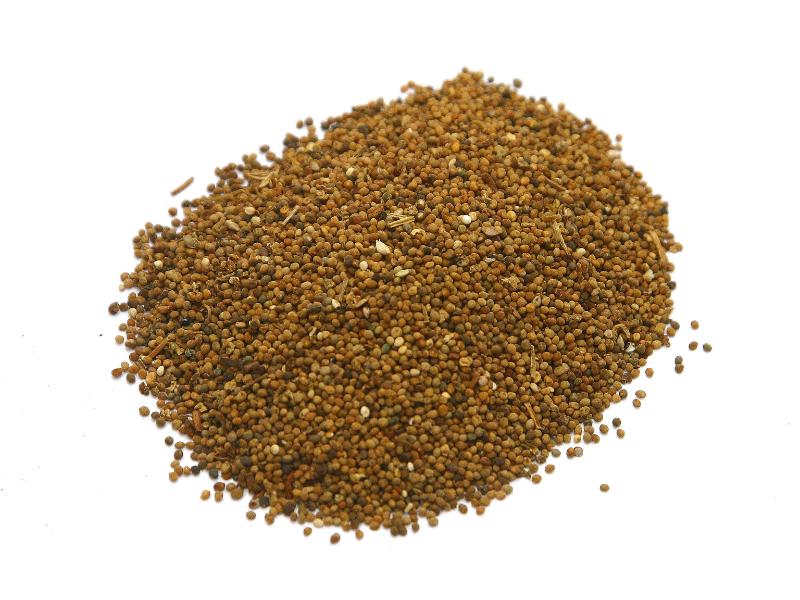Search in medicinals

Alternate English names: dodder [seed] Chinese dodder [seed]
Alternate Chinese names: 菟丝实 <i>tù sī shí</i>; 吐丝子 <i>tù sī zǐ</i>; 兔丝子 <i>tù sī zǐ</i>; 菟缕 <i>tù lǚ</i>; 缠龙子 <i>chán lóng zǐ</i>; 龙须子 <i>lóng xū zǐ</i>; 豆须子 <i>dòu xū zǐ</i>
Kingdom: Plant
Origin in PRC Pharmacopoeia: <i>Cuscuta chinensis</i> Lam. (<i>PRC Pharmacopoeia</i>)
Origin in unofficial sources: <i>Cuscuta chinensis</i> Lam.*; <i>Cuscuta japonica</i> Choisy; <i>Cuscuta maritima</i> Mak.; <i>Cuscuta australis</i> R. Br.
Use: Medicinal
Category: Supplementing agents / Yáng-supplementing agents
Properties: Acrid, sweet; warm. (Some sources say balanced.)
Channel entry: Liver, kidney, and spleen channels.
Actions and indications:
- Supplements the kidney and secures essence: Seminal emission, frequent urination, vaginal discharge, pain in the lumbus and knees, and impotence.
- Nourishes the liver and brightens the eyes: Dim or clouded vision, loss of visual acuity.
- Checks diarrhea: Diarrhea due to
spleen-kidney vacuity . - Quiets the fetus: Stirring fetus in liver-kidney vacuity.
- Additional uses: Tù sī zǐ is used for kidney vacuity patterns of dispersion-thirst. For this purpose, it is combined with Tiān huā fěn (天花粉 Trichosanthis Radix, trichosanthes root), Wǔ wèi zǐ (五味子 Schisandrae Fructus, schisandra [berry]), and Lù róng (鹿茸 Cervi Cornu Pantotrichum, velvet deer antler).
Dosage and method: Oral: 10–15g in decoctions, powders, or pills. Use it raw to treat cloudy vision. The stir-fried form is preferred for seminal emission, copious urine or enuresis, vaginal discharge, stirring fetus, and impotence.
Warnings: Tù sī zǐ is quite balanced, but it is unsuitable in yīn vacuity with effulgent fire, dry bound stool, and short voidings of reddish urine.
Product description: This seed is spheroid or ovate, often with a depression on each side. It is 1.5 mm long and 1 mm thick and has a light reddish-brown seed coat. It is hard and does not easily break. It is often comes in the form of cakes made by crushing and steaming the seeds.
Quality: Clean, plump seeds are the best.
Production area: Héběi, Jiāngsū.
Etymology: The Chinese 菟丝 <i>tù sī</i> includes the word 丝 <i>sī</i>, silk, probably being a reference to the tendrils by which it clings to other plants. Many English folk names, such as <q>angel's hair</q> and <q>devil's hair</q> also reflect this feature of the plant.
Back to search result Previous Next